You are here
Filmography
Featuring well-known L.A. Rebellion works alongside rarely seen student films, this body of work represents not only the originality of the individuals whose names are on them, but a collective vision as well. Across the two decades during which they made their presence felt at UCLA, and in the decades since, individual L.A. Rebellion artists have focused on diverse topics and responded to evolving political and artistic thought through their work. Explorations of class, considerations of historical legacies, stories attentive to concerns of local communities and appreciations of other Black arts are only some of the areas of exploration. The films also display a diversity of forms, from irreverent reconfigurations of well-worn genre types, to groundbreaking experiments with cinematic language. Certain works, long out of circulation, represent rediscoveries and will certainly lead to much future scholarship.
Learn more about the UCLA Film & Television Archive’s ongoing “L.A. Rebellion” inititiative.
| Title | Year | |
|---|---|---|
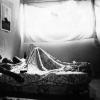 |
Emma Mae In Jamaa Fanaka's second feature, Emma Mae arrives in Los Angeles from Mississippi replete with rough edges and an exceptional ability to kick ass. Emma Mae’s plain looks and shy demeanor set her apart from supermama heroines of this “Blaxploitation” era (e.g., Foxy Brown, Cleopatra Jones). But when folks underestimate her, Emma Mae surprises everyone, including her no-good boyfriend Jesse, with her extraordinary physical and emotional strength. |
1976 |
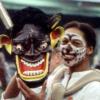 |
Festival of Mask In this documentary by Don Amis about the Craft & Folk Art Museum’s annual festival, L.A.’s diverse racial and ethnic communities (African, Asian, Latin American), express themselves through a shared traditional form. |
1982 |
 |
Il Finale A unique stylistic blend of dramatic social realism and Latin American soap opera, the film is a story of high hopes and unattained desire. Raúl and José are Cuban emigrés struggling to succeed in Los Angeles. Puccini’s Madama Butterfly and a melodramatic sensibility make up José’s world. Raúl, his lover, overflows with optimism, but his enthusiasm soon fades as his race and sexuality make him the victim of economic and sexual exploitation. As José loses himself in Puccini’s tragedy, Raúl metaphorically lives out Madame Butterfly’s fate. Directed by Russell Martin. |
1989 |
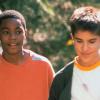 |
"Finding Buck McHenry" A young boy gets cut from his Little League baseball them, decides to start his own team and talks the school custodian into being the coach. The man's expertise and wisdom lead the boy to suspect he's a forgotten Negro League legend. Directed by Charles Burnett.
|
2000 |
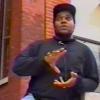 |
Fired-Up or How I Turned My Rage Into Art O.Funmilayo Makarah crosses the country interviewing people about their reactions to the "not guilty" verdict in the 1992 Rodney King beating case and the resulting unrest in Los Angeles. |
2006 |
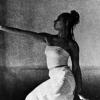 |
Four Women Dancer Linda Martina Young portrays the four Black women described in Julie Dash's dance film set to Nina Simone’s stirring ballad. |
1975 |
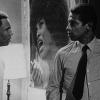 |
Fragrance Conflicted by duty and fear, George heads off to war, still unresolved over the larger question of whether African Americans should be fighting for justice at home or abroad in Gay Abel-Bey's drama. |
1991 |
 |
"Funny Valentines" A woman runs from a troubled marriage in New York, returning to her home in the Deep South and the cousin she left behind. Directed by Julie Dash. |
1999 |
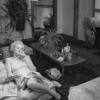 |
Gidget Meets Hondo Filmed by Bernard Nicolas in response to the LAPD’s shooting of Eulia Love in 1979, Gidget Meets Hondo asks whether such police brutality would be tolerated if the victim were a middle-class white woman. |
1980 |
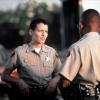 |
The Glass Shield An enthusiastic black rookie cop is gradually corrupted in the Los Angeles Police Department by a steady onslaught of racism. Directed by Charles Burnett. |
1994 |
Pages
To report problems, broken links, or comment on the website, please contact support
Copyright © 2025 UCLA Film & Television Archive. All Rights Reserved






 Mobile Navigation
Mobile Navigation

